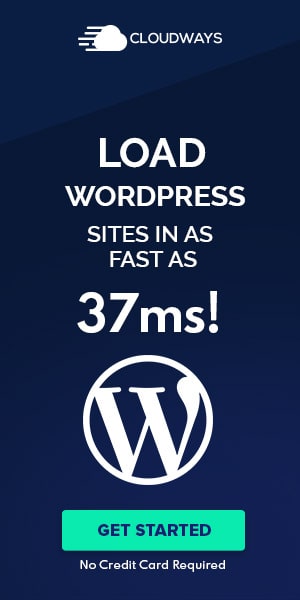How To Hire a Web Developer
Whether it’s your first website you’re building or this is not your first web development rodeo, there are a few things to do to make sure you’re hiring the right developer, so your project goes smoothly and trouble-free.
Having a new website built should not be a stressful journey, but that’s not always the case. In fact, it can seem straight-up overwhelming and is the reason there are so many redundant websites online. And if you already had a website or two built, chances are you had some challenging experiences with the developers you hired. But when it’s done right, and you’re matched up with the right developer, it is a rewarding and profitable experience.
The first thing I suggest before starting is to prepare a hiring plan. And if you are reading this, then you are already on the right track. Below I have listed a few things to get started with the preparation.
1. Determining Your Budget
This can be a bit tricky. You know how much your investment capital is, but how do you determine how much to spend. The price range with different developers and agencies is so diverse and has such a wide range, which do you go with?
By default, I am a bargain shopper, and I always look for the best deals. And I’ll confess to a little bit of paranoia about burned. I’ve had my fair share of buyers’ remorse in the past. And if you are a small business, making a bad investment can really hurt. So I never want to overpay. But on the flip side, by spending too little, you are basically taking a big gamble with the quality and might not get anything useful which is a complete loss of the money spent. It’s just one of those things ‘you get what you pay for.’
So how much should you pay? The first thing to do is look at how valuable your website will be to your business. Some sites are just informational and non-revenue generating for businesses. For these, I wouldn’t advise spending too much money on. While others can be the driving force behind the company’s sales, leads, brand, and growth. The question to ask yourself: How much will you benefit (profit) from a professionally optimized website?
Another thing to keep in mind when figuring out your budget is the total cost for your website. Web development is just one part of it. You have the web and UI design, SEO, copywriting, etc. By figuring out your budget in the very beginning, this will help you focus on the level of web developer you can afford, and how much you can invest for your entire project.
2. Choosing Between Freelancer and Agency
The first thing is understanding the differences between a freelancer and an agency and what to expect from both.
Hiring a freelancer
Some benefits you may get from a freelancer is a better price, availability, and a personal touch. Agencies tend to cost more. Also, experienced freelancers can have more flexibility. Usually, freelancers are working on just a couple of projects at a time, so often, all of their attention will be on you and your project. You get more of that ‘personal’ touch when working with a freelancer.
Some shortcomings to consider when hiring a freelancer: you will just be working with one person so they may be limited in what they do with their skill set. You may need a good design and SEO done as well, which means you might have to hire multiple freelancers who can get complicated and time-consuming to manage. Also, your freelancer might not always be available. They can get busy on another project or even go on holiday right when you have something crucial that needs to get done.
Still, working with a freelancer is great if you want the undivided attention from just one person. And the relationships built with them can be fantastic. I was a freelancer for several years, and it was excellent working with my clients on a more personal level. I made a lot of lasting friendships, as well. There’s something special when a freelancer has just one or two projects because all of the energy goes to their clients and their goals. You’re growing together.
Hiring an agency
Choosing an agency can work well for those with a more flexible budget and growing the online side of their business. A right agency will have an organized process in place and can give you a more professional experience. They also can be more reliable when it comes to communication and deadlines. There is always someone available for you, and you most likely will have just one point of contact so you can still get the personal treatment. There just happens to be a team behind that person that is focused on you and growing your business.
The thing is, agencies have a lot more on the line to make sure their clients are taken care of. They have a brand and a reputation to uphold. And if they are right, they are looking at the long term partnerships.
If you know your project will need more than just building a website, such as custom design, branding, SEO, digital marketing, then an agency can be an all in one solution. You could avoid the headache of hiring multiple freelancers. Just hiring one is hard enough, and this can save a lot of time, worry, and money.
One common problem I have seen from new clients where their websites went wrong is they hired multiple developers to do work on their website. When doing this, some developers will be useful, and some not really. What usually happens next is you get every developer’s mistakes and bad habits mixed together. The good developers are looking at a mess which the budget can’t cover to repair. So work just gets added to a ball of confusion until the website is no longer usable and needs to be rebuilt.
By choosing either one, freelancer, or agency, and sticking with them, you will get someone that knows you, your business goals, and your website inside out. That will be the best investment to guarantee your website’s longevity.
3. Researching Reviews and Social Media
How to know if your freelancer or agency is right? Unfortunately, there’s a lot to be watchful for in both. And sadly, I have heard too many developer horror stories. You may even have had one yourself.
The best way to find out is with the due diligence of research. This can quickly be done. Just about everybody has testimonials on their websites nowadays. But are they legit? Some are, and some aren’t. If you are reading their testimonials, see if they give reface to their companies and then try to look them up on Google searches. Personally, I would like to see reviews from people that got actual results. And I want to see those results!
Then there are a couple more sources to check out. The first one, google reviews. Freelancers may not have this, but an agency should. Look them up on Google Maps, that is where you will find their reviews. Google Maps is where you can find a company’s Google My Business.
Another tip is double-checking their address. I have seen agencies with an address in the United States, but when looking at the street view, it shows a house. Then going through more in-depth searches, I find out they are actually located in a different country. If an agency is misleading or shows any kind of dishonesty like this, stay clear. You’ll never get full integrity from them.
And the last place to search for both freelancers and agencies is social media. Primarily Facebook, LinkedIn, and Instagram. And if they are proactive in their social media, they will have a few other channels like Pinterest, Behance, Github, and Dribbble.
Social media links should be on their websites. Check their pages and see if they’re active by checking the dates of their latest posts. They should also have reviews on at least one of them. Social media proof is an essential and necessary indicator to ensure your choice of developer.
4. Knowing Your Goals and What You Expect Your Website To Do
Take time on this one and put good thought into it. All projects start with a goal. An experienced developer and web designer will be able to help to turn that goal into a strategy. By understanding and having a clear focus on what you want your website to accomplish this will give your developer and or designer a starting point.
By default, web developers and designers are problem solvers. Their brains are programmed to look for solutions. So when you have a goal in mind, including actions, functions, and features you have envisioned, they can help find the answers to make them go from an idea into live reality.
Choosing a more experienced developer will cost more for sure. But their experience here has a value that is often not considered. Most people know their goals and what they want to accomplish, but don’t know how to make that happen on a website. A seasoned developer will already know what works and what doesn’t. They will help guide your project to be in line with your goals.
5. Clear Communication
Direct and open communication is vital to making your project a success. I know you can’t hold your developer’s hand and micromanage them, but both of you should feel comfortable communicating with each other.
So while you are talking with potential developers, have calls and Skype with them. And if they are in your area, have an in-person meeting. Usually, from the first meet, you can see if you both vibe well together.
Plan on staying available. Timelines are extremely important for both the client and the developer. One thing to consider is a developer will delegate the time allotted for your project. If you don’t communicate well and take the time to answer emails and questions, this will delay your website’s deadline. Poor communication results in the developer moving on to the next project they have lined up. They then have to finish your website while focusing on another project. This means your site might lose priority for the developer.
There are many great new tools to use for projects as well. Be open to try new things. Your developer should help you along and make it easier for you. Some small websites might be ok with just emails where some larger designs work well with Trello and other project management tools. If you feel your business needs more than emails for idea exchanges and project management, ask your developer if he has other communication tools for you both to use.
6. The Interview
To be honest, I am surprised how many clients have hired me without having an in-person meeting or video/phone call. When I was new, this happened all of the time. Now, I make sure to always have a meeting first. Both the client and the developer need to get to know each other first for the sake of clarity.
Also, if you get a high-level developer, expect them to interview you too! The goal is to make sure you are a mutually good fit. That way, both partners get maximum benefits.
Now, I purposely wrote this list in order. After doing steps 1 – 5, you should have a list of at least three freelance developers or agencies you are considering to hire. My personal rule of thumb when hiring someone is always having a minimum of three candidates. Once you have your candidates, treat the hiring process as an interview. Schedule a proper meeting and prepare your questions.
7. A Detailed Contract
Now you found your perfect fit, and you feel totally confident about your choice. You like the person and connect with their personality, and you are ready to go. One thing you want to make sure of is you have an absolutely clear understanding of what that developer will be delivering to you.
The last thing you or your developer wants is for the rapport to go sideways and get weird. If there isn’t a clear understanding of the scope of work, tensions can spark, and things start to get uncomfortable.
By having a contract that clearly outlines the project scope, timeline, costs, and deliverables that are agreed on, this can prevent your project from going off course. Most experienced developers and agencies will have a contract, but sometimes it’s not explained enough in previous discussions. If you are hiring a newer developer, they might not yet have their process defined sufficiently to provide a detailed contract.
An excellent way to get this understanding from the very beginning is to talk about it. Communication is gold.
The goal of this article is to help you find the right developer. If you follow all of these steps, it can make the process of hiring a developer more secure. Most importantly, you can find someone you trust and is in line with your business goals. Once you find the right one, you will always have that developer there for you. And building those long term relationships adds much more value than just hiring a service provider for a job. You are actually finding a partner for your website.


